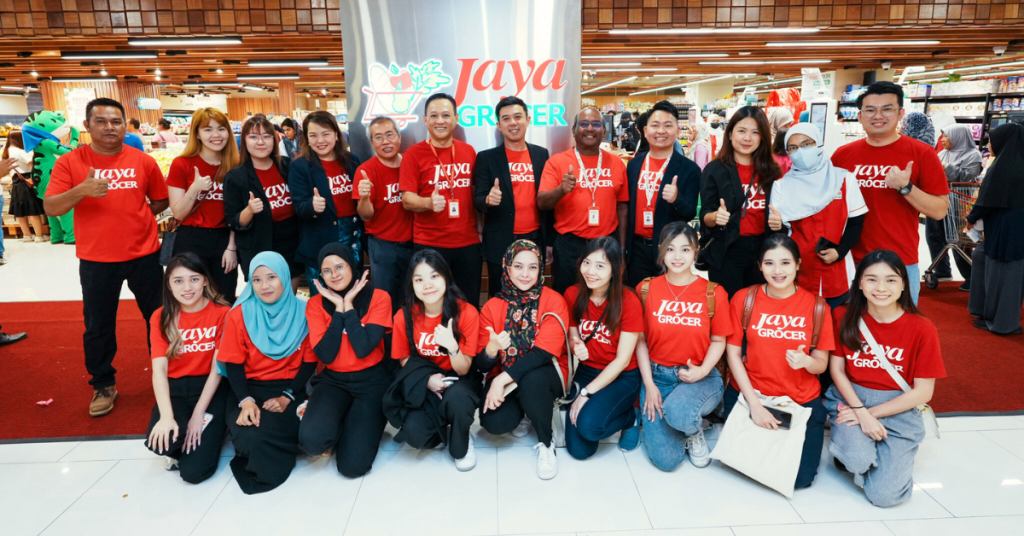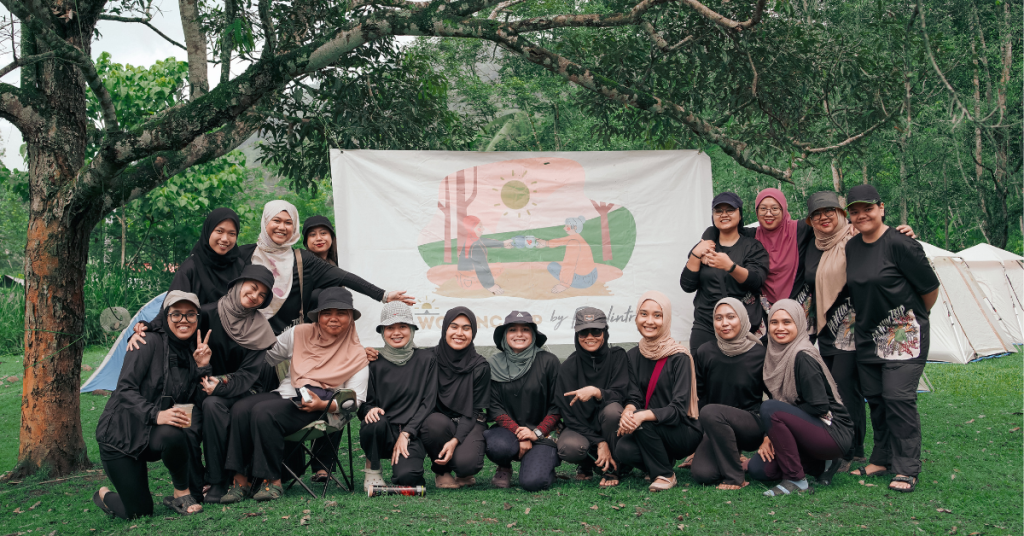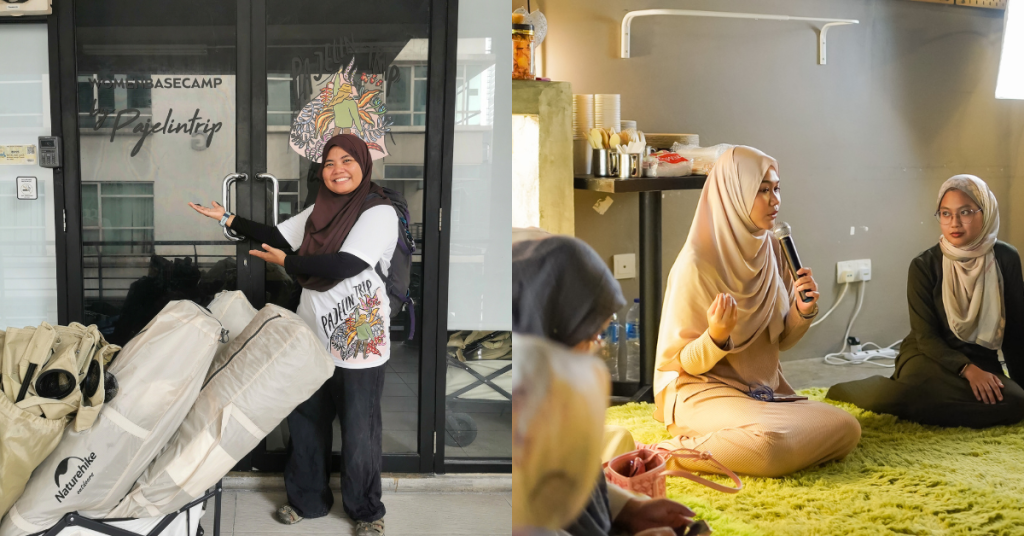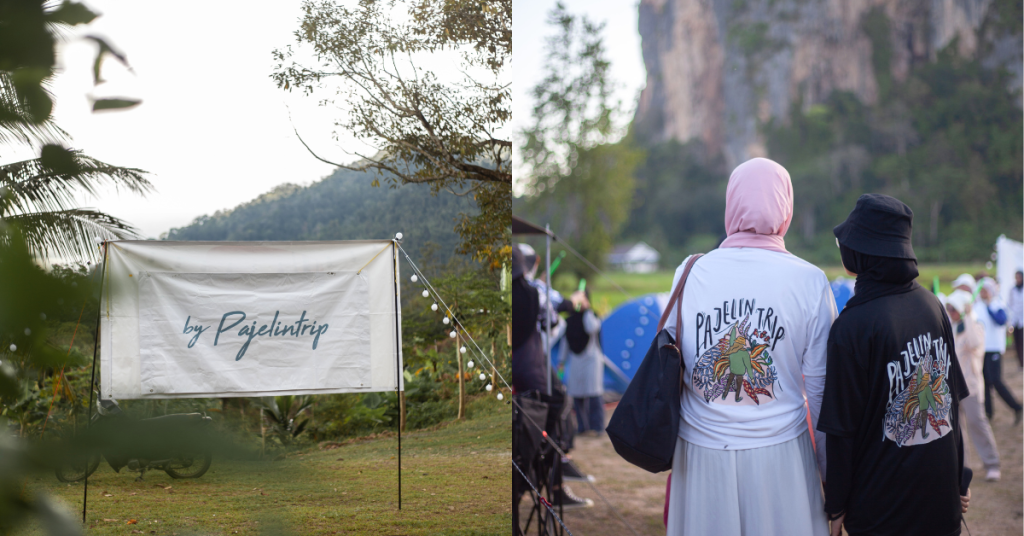Making AI work for you: How this S’porean startup is revolutionising real estate with AI

This article is sponsored and written by MOGUL.sg
AI has been the dominating theme in tech in 2023, few will dispute that. There has been a broad mainstream adoption of Generative AI tools, especially in the work space. At the same time we saw how researchers in dedicated fields like cybersecurity or drug discovery have made great strides. And there are many more examples.
Big tech is now pouring billions into the development of new chips and data centre capacities. Goldman Sachs forecasts AI investments to grow to $200 billion annually by 2025. AI unicorns, such as cloud software firm Databricks ($43 billion), autonomous driving startup Cruise ($30 billion) and OpenAI ($29 billion), have boosted their valuations over the past months, according to Crunchbase.
The hype should also benefit the local startup scene that has more room to grow. Singapore’s government has pledged more support and just announced that it aims to triple the number of AI professionals to 15,000. Finding the right talent had been a challenge for Gerald Sim, CEO and founder of Thanit Apipatana-backed real estate mapping startup MOGUL.sg.
Introducing a new way of working

Sim founded MOGUL.sg in 2018 out of Singapore Land Authority’s incubator Geoworks and his friend, venture investor Thanit Apipatana, became his first investor. Apipatana is also a close advisor since the early days.
The AI initiative is definitely going in the right direction. AI does not put people out of jobs; it creates new requirements for the labour force that needs to be equipped and ready for this.
Gerald Sim, CEO and founder of MOGUL.sg
AI is promising enormous productivity gains and is therefore causing some anxiety on whether certain job roles might become redundant. At the AI-native MOGUL.sg, teams use tools like ChatGPT and Google Bard to crunch large amounts of data and to generate scripts that before took many hours to produce. Creatives utilise natural language components that support copywriting, while the accounting department is able to generate cleaner looking spreadsheets.
MOGUL.sg is currently working on improving its platform and models with additional geospatial data. “The core of all generative AI is its ability to understand and respond to linguistic inputs,” Sim says. “We are now working to feed these models with all the data points we have, so that the Gen AI can give more in depth geospatial answers.”
The firm plans to roll out new features early next year that aims to change how real estate transactions are conducted. MOGUL.sg’s ambition is to provide all the answers around a deal on a 3D map that is displaying data on the property and its surroundings. Visitors can navigate the map on their devices and zoom into individual buildings to catch details. That should make the buying and selling more intuitive and streamlined.
As computer power becomes more affordable and the ability to store and mine vast amounts of data increasingly accessible for startups, we can expect more innovation across industries in the years to come. This will make us overall more productive, but it will at the same time also open up new job perspectives.
Featured Image Credit: MOGUL.sg
Also Read: This AI-Driven Property Portal To Launch S’pore’s First 3D Viewing – Earns 6-Figures A Month
Carousell doubles down on luxury segment with acquisition of S’pore luxury bag reseller LuxLexicon

Carousell Group has expanded its luxury segment by acquiring LuxLexicon, a Singapore-based luxury bags reseller and authenticated luxury consignment platform, today (April 2).
The secondhand marketplace is looking to extend its gains in the luxury resale market with the acquisition as it seeks to tap a market projected to reach US$7.5 billion by 2026. Over the last two years, the company said it has seen a surge in its high-end bag listings, with an increase of 71 per cent per month.
While Carousell did not disclose how much LuxLexicon was acquired for, filings with the Accounting and Corporate Regulatory Authority of Singapore show that Carousell paid for the deal in a mixture of cash and shares amounting up to S$2 million worth, the Business Times reports.
The acquisition will also allow LuxLexicon to leverage Carousell Group’s expertise in online recommerce and overseas expansion for future growth. LuxLexicon will continue to be led by its founder, Florence Low, and operate as its own brand, retaining its name, retail space, and team.
Carousell Group has also made acquisitions for fashion, mobiles and autos

Over the past couple of years, Carousell Group has been strengthening its recommerce foundations to drive the company’s multi-category approach on its top growth categories, including Luxury.
In 2023, it launched two initiatives to make buying and selling luxury bags more reliable and user-friendly, including the Carousell Certified Luxury program, which verifies the authenticity of high-end bags and the Sell to Carousell Luxury service, which allows users to sell or consign their bags to Carousell.
Marcus Tan, the co-founder of Carousell Group, says that he initially met Florence Low, the founder of LuxLexicon, to partner with the business for Carousell’s Certified Luxury programme.
“After conversations, we realised that we had a similar vision, and by joining forces with LuxLexicon’s expertise, we could help each other supercharge our luxury bag business in Southeast Asia, Hong Kong and Taiwan over the next few years,” he shares.
Apart from Luxury, the secondhand platform also had made acquisitions for fashion, mobiles and autos over the years. The acquisition of LuxLexicon follows the group’s 2022 acquisition of Indonesian electronics recommerce platform Laku6 and Singaporean omnichannel fashion recommerce retailer REFASH.
Although the company views organic growth as a top priority, Carousell Group will continue to seek acquisition opportunities with the “right partners across its focus categories and markets to accelerate the future of secondhand in Greater Southeast Asia”.
Featured Image Credit: Carousell Group
Also Read: “This space marks a coming-of-age”: Carousell unveils new regional HQ at one-north in S’pore
As part of its ESG efforts, Jaya Grocer adopts on-demand pay for employees nationwide

With a focus on employee well-being, Jaya Grocer announced yesterday (April 1) that it’s introducing earned wage access (EWA) in the company. This is done in collaboration with one of Asia’s largest EWA providers called Paywatch.
Headquartered in Malaysia, Paywatch is a fintech startup that’s worked with major banks like Hong Leong Bank.
This collaborative project is part of Jaya Grocer’s comprehensive and technology-enabled employee wellness programme that aims to enhance financial flexibility and reduce financial stress. “We are on a transformation journey where the focus is on people,” the brand told us.
Essentially, EWA is a financial payroll solution that offers employees real-time access to their earned wages before the regular payday. This is not to be confused with a loan or an advance on their salary. One local EWA provider we’ve featured in the past is Payd.
The current payroll system that Jaya Grocer uses still remains as is. All Jaya Grocer team members will continue to receive their salaries on a monthly basis through its existing payroll system.
The only difference with the implementation of EWA is that employees now have an additional avenue to access earned wages. This is usually to help them tide over short-term, unexpected expenses such as emergencies or urgent payments where deadlines cannot be stretched until usual pay days.

“This is helpful for our people as they can then avoid penalties and late fees in urgent situations by making prompt payments,” Jaya Grocer explained.
A recent study revealed that 42% of employees in Malaysia have high levels of financial risk, and 62% of employees say their mental health impacts their work productivity. Being in a people-centric, labour-intensive industry, Jaya Grocer believes this new EWA introduction will improve welfare.
Together with its EWA system, Jaya Grocer has conducted intensive roadshows for all its outlets and distribution centres to ensure that employees understand its pros and cons. To avoid misuse, there is a minimum and maximum cap that one can withdraw in a month so that it does not affect their end-of-month take-home pay.
Currently, this is only available to the majority of the supermarket chain’s front-liners and distribution centre team, which is around 3,100 full-timers across the country. Phase 2 of the rollout will cover the remainder of its staff members in the near future.

“The aim of this implementation is to show our people that we care for them and, importantly, as part of the attraction and retention strategy,” the brand stated.
Amidst its network expansion plans this year, Jaya Grocer expects this partnership with Paywatch to strengthen its value proposition for employees while significantly reducing employee turnover.
Its press release shared that data from Paywatch found EWA to reduce employee turnover by up to 40% while significantly improving productivity.
“There is a strong correlation between happy, financially secure employees and successful companies,” said Alex Kim, co-founder and President of Paywatch. “As a holistic solution, Paywatch helps employers cultivate great workplaces and supports their efforts in alleviating money-related stress and distractions for employees so that people can thrive professionally and personally.”
This aligns with Jaya Grocer’s aim of advancing its environmental, social, and governance (ESG) commitment. Specifically, it supports employees to build sustainable livelihoods and improve their resilience to navigate macroeconomic challenges.
- Learn more about Jaya Grocer here.
- Learn more about Paywatch here.
- Read other articles we’ve written about Malaysian startups here.
Also Read: Employees need a Copilot to boost productivity & ease brain drain. This webinar shows how.
Featured Image Credit: Jaya Grocer
Grab to discontinue GrabPay cards in June, cites higher adoption of other Grab offerings

Grab will be discontinuing their GrabPay digital and physical cards from June 1, 2024 onwards.
In an announcement on its website, the mobility and tech giant stated that users will no longer be able to make online and offline transactions with their digital or physical GrabPay cards from June this year. The company will also not be accepting new card applications starting in April.
Grab stated that the decision came after evaluating its existing financial services, where they saw higher adoption of other Grab offerings, including PayLater by Grab and GrabPay e-wallets. They have also expressed their ambition to refine their fintech offerings to provide better user experiences.
We thank our customers for their support of GrabPay Card over the last few years, and remain committed to serving our customers and partners through other financial offerings on the platform.
Grab via their announcement on their website
As the discontinuation will only be effective from June this year, Grab has stated that users can continue to use their GrabPay Card to earn GrabRewards points on all eligible online and in-store transactions in Singapore and overseas until May 31. The number of points earned from transactions after the discontinuation will not change.
Card replacement requests can still be made until the end of April, and users who have yet to activate their physical cards may continue to do so until May 31.
Grab will also continue with ongoing transaction disputes until September 30.
The news of the GrabPay card discontinuation comes after the company’s largest round of layoffs in June last year and the winding-down of its investment arm, GrabInvest.
A look back to “Asia’s first numberless card”
GrabPay cards were launched in Singapore in 2019, with Grab touting it to be “Asia’s first numberless card”.
This came following their partnership with Mastercard, which allows users, including those without bank accounts, to pay at 53 million merchants that accept Mastercard cards.
GrabPay cards were an extension of the GrabPay e-wallets, which it was designed to “address major security concerns users associate with transacting both online and offline”.
Many Singaporean fintech players have since launched their own digital cards, notably Trust Bank with their Trust Supplementary card and GXS Bank with their line of debit cards.
It is worth noting that these two digital banks have been refining and expanding their digital finance products and services in recent months, which has increased the competition for Grab and their GrabPay cards.
Featured Image Credit: Grab
Also Read: S’poreans can now top-up their GrabPay wallets with cryptocurrency
To make travelling safer for ladies, she started Malaysia’s first all-women adventure club

When Fazleen Nazri started going on hiking trips, she never thought of turning it into an adventure club. She was just someone who enjoyed the outdoors and frequently ventured out of her comfort zone.
The more she travelled, though, the more she saw its viability.
It began with her friends asking to join on hiking trips, both in and out of Malaysia. Then those friends invited their other pals and relatives. Each time, she would host a bigger crowd with new faces.

Eventually, without her realising it, the adventure club formed itself and she was at the helm of it.
What else was she to do but seize the opportunity? That’s the tale of how PajelinTrip got its rather impromptu start.
Fun fact: The name PajelinTrip was created by Fazleen’s friend because “Pajelin” sounds like Fazleen.
A safe space for ladies

Established in 2017, the adventure club is a space where women can experience the outdoors without fearing for their safety.
Speaking candidly, Fazleen shared that she understands the issues the fairer sex faces, particularly when you’re out of the house. “Some women experience sexual harassment [and] uncomfortable flirting when outdoors or during travel activities.”
It’s a common issue around the world and has unfortunately caused many women to forgo having such hobbies.

This is what Fazleen is hoping to change through PajelinTrip. By providing a comfortable environment for women, her aim is to encourage girls to break the cycle and try something new.
As such, the adventure club offers a few programmes to choose from: Women Camp, Women Trip, and group hikes.
For Women Camp, it’s an all-inclusive experience so you don’t have to bring anything but yourself and your personal belongings. There is a participation fee but the camping trip is all-inclusive where camping equipment and food will be provided. Fazleen’s team of two also furnishes the tents with air mattresses for comfort.
The hiking trips are similar, where most aspects are covered by Fazleen and her team. All you need to do is bring along a sense of adventure.

Building a community from the ground up
On the other hand, the Women Trip is for leisure travels. The team will prepare transportation, accommodation, and a tour guide throughout the vacation.
If you think this sounds similar to a travel agency, you wouldn’t be alone. You still have to fork out your share to join these activities. But the founder clarified that the brand sees itself as more of a community that organises events.
This is because all of the club’s activities are founded on the basis of building close relationships with each other. Before any adventures happen, the team hosts classes with participants at its studio in Kelana Jaya.

These gatherings are meant as briefings to explain the itinerary and give some background knowledge for hikes and camps. But more importantly, it’s to foster connections amongst new and existing club members.
Essentially, the idea is to ensure that you know each other before the trip. Because let’s be real, travelling with strangers can make a trip awkward and uncomfortable.
So far this strategy seems to be working. Fazlees even shared that many of the club members have become friends outside of PajelinTrip as well. In fact, the only crew member aside from Fazleen and her co-founder (who prefers to remain anonymous) was once a client.

A speech therapist by day, Siti Fatimah joined the adventure club back in 2020 before the pandemic happened. She wanted a medium that allowed her to be comfortable outdoors and fell in love with the community it built.
Going all in ’cause it’s now or never
Thus far, PajelinTrip has brought groups of people to visit various places such as Kota Kinabalu in Sabah, Mount Rinjani in Indonesia, and Annapurna in Nepal last year.

Its participants come from a wide range of age groups as Fazleen doesn’t discriminate. They’ve even had a 60-year-old woman join one of their camping trips alone. Again, this is where the community comes in as moral and emotional support.
“They know that they can rely on us when they reach the campsite for safety and privacy,” Fazleen stated.
Up until the third quarter of 2023, Fazleen was running PajelinTrip as a passion project on the side. But six years into the club’s founding, she finally took a leap of faith and left her career in the accounting industry.

“It was about time for me to try and give myself the space to pursue this as a business. I think if I don’t try it, I won’t know [if it will work out],” Fazleen confided.
Looking at how the club has grown over the years, though, there’s certainly a demand for PajelinTrip’s services. It’s possible that we’ll see more brands tailoring services for women mushrooming in the coming years (or even months), but if they’re just there to profit, they might have their work cut out for them.
As Fazleen put it, “We don’t sell the [adventure] packages, we sell the bonding experience.”

Also Read: Employees need a Copilot to boost productivity & ease brain drain. This webinar shows how.
Featured Image Credit: PajelinTrip

